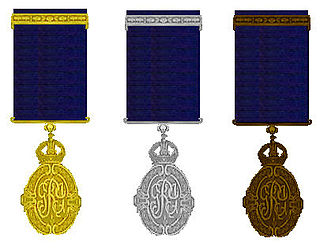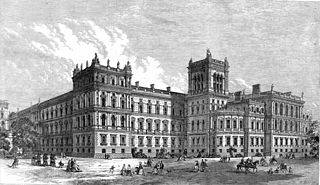Related Research Articles

India is the most populous country in the world with one-sixth of the world's population. According to official estimates in 2022, India's population stood at over 1.42 billion.

Canary Wharf is an area of East London, England, located near the Isle of Dogs in the London Borough of Tower Hamlets. Canary Wharf is defined by the Greater London Authority as being part of London's central business district, alongside Central London. Alongside the City of London, it constitutes one of the main financial centres in the United Kingdom and the world, containing many high-rise buildings including the third-tallest in the UK, One Canada Square, which opened on 26 August 1991.

The Governor-General of India was the representative of the monarch of the United Kingdom in their capacity as the Emperor/Empress of India and after Indian independence in 1947, the representative of the Monarch of India. The office was created in 1773, with the title of Governor-General of the Presidency of Fort William. The officer had direct control only over his presidency but supervised other East India Company officials in India. Complete authority over all of British territory in the Indian subcontinent was granted in 1833, and the official came to be known as the "Governor-General of India".


The Chief of Army Staff (COAS) (unofficially known as the Army Chief) is a statutory position in the Indian Army held usually by a four star general. As the highest ranking officer to serve solely in the Indian Army, the chief is the professional head of the ground forces and a key adviser to the Minister of Defence. The COAS, in a separate capacity, is also a member of the National Security Council and thereby an advisor to the president and the prime minister. The COAS is typically the most senior army officer in the Indian Armed Forces, unless the Chief of Defence Staff and/or the Chairman Chiefs of Staff Committee is an army officer.
The Indian Civil Service (ICS), officially known as the Imperial Civil Service, was the higher civil service of the British Empire in India during British rule in the period between 1858 and 1947.

The deputy prime minister of India is the second-highest ranking minister of the Union in the executive branch of the Government of India and is a senior member of the Union Council of Ministers. The office holder also deputises for the prime minister in their absence.

A salute state was a princely state under the British Raj that had been granted a gun salute by the British Crown ; i.e., the protocolary privilege for its ruler to be greeted—originally by Royal Navy ships, later also on land—with a number of cannon shots, in graduations of two salutes from three to 21, as recognition of the state's relative status. The gun-salute system of recognition was first instituted during the time of the East India Company in the late 18th century and was continued under direct Crown rule from 1858.

The Kaisar-i-Hind Medal for Public Service in India was a medal awarded by the Emperor/Empress of India between 1900 and 1947, to "any person without distinction of race, occupation, position, or sex ... who shall have distinguished himself by important and useful service in the advancement of the public interest in India."

Ronit Bose Roy is an Indian actor, known for his works primarily in Hindi television and films, alongside a few Bengali, Tamil and Telugu cinema. Roy has earned numerous accolades in his career including a Filmfare Award, two Screen Awards, five ITA Awards, and six Indian Telly Awards.

The Colonial Office was a government department of the Kingdom of Great Britain and later of the United Kingdom, created in 1768 to deal with the colonial affairs of British North America and to oversee the increasing number of colonies of the British Empire, until merged into the Commonwealth Office in 1966. Despite its name, the Colonial Office was never responsible for all Britain's Imperial territories; the protectorates fell under the purview of the Foreign Office, and the British Presidencies in India were ruled by the East India Company until 1858, when the India Office was formed to oversee the administration of the new Viceroyalty of India, while the role of the Colonial Office in the affairs of the Dominions was replaced by the Dominion Office in 1925.
The Law Commission of India is an executive body established by an order of the Government of India. The commission's function is to research and advise the government on legal reform, and is composed of legal experts, and headed by a retired judge. The commission is established for a fixed tenure and works as an advisory body to the Ministry of Law and Justice.
Events in the year 1863 in India.

The British Deputy High Commission, Chennai is the United Kingdom diplomatic mission with responsibility for the state of Tamil Nadu and the union territory of Puducherry. It was formed in 1947 with Sir Christopher Masterman, CSI, CIE, as its inaugural holder, who served as Deputy High Commissioner until the following year. The Deputy High Commissioner is equivalent to a Consul-General, and reports to the British High Commission. The current Deputy High Commissioner is Oliver Ballhatchet. He succeeds Jeremy Pilmore-Bedford.
References
- ↑ Great Britain India Office (1819). The India List and India Office List. Vol. I. Harrison. p. 127 . Retrieved 30 August 2019.